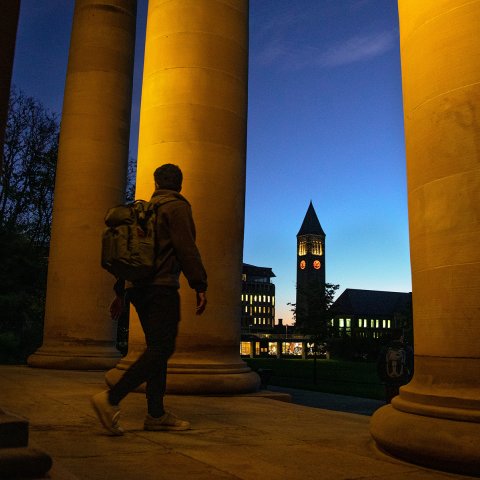Next Up: Maintain and Extend H-1B Status
J-1 Physical Presence and Bars
As a J-1 exchange visitor, you might be affected by the two-year home country physical presence requirement and 12- and 24-month repeat participation bars. These rules may impact your future U.S. immigration options.
The two-year rule and 12- and 24-month bars are not the same thing! You may be subject to the two-year physical presence requirement, but not a repeat participation bar—or vice versa. You may also be subject to both.
On this page: Learn about the physical presence requirement and bars and find out if they apply to you.
Home Country Physical Presence Requirement
Many, but not all, J-1 exchange visitors are subject to the two-year home country physical presence requirement—section 212(e) of the Immigration and Nationality Act.
What is the Two-Year Rule?
The “two-year rule” states that you and your J-2 dependents must return to your home country and remain physically present there for a total of two years (or obtain a waiver) before you become eligible for any of these benefits:
- H visa (temporary worker)
- L visa (intracompany transferee)
- K visa (fiancé/e visa)
- Change of status applications to ANY status (except to diplomatic classifications A and G)
- Adjustment of status to U.S. permanent resident (“green card”) status
The two-year rule doesn’t force you to return home. Instead, it limits what U.S. immigration benefits you can apply for if you have not yet spent two years back in your home country. It also doesn’t prohibit you from applying for other nonimmigrant visas, provided you meet all other eligibility criteria. Learn more about the two-year rule.
Who is subject to the two-year rule?
The two-year home country physical presence requirement applies to you if you meet any of the following criteria:
- Your J-1 exchange program was financed directly or indirectly by the U.S. government or a foreign government for the purpose of exchange.
- Your skills are needed in your home country, as registered by your government on the U.S. Department of State’s Exchange Visitor Skills List.
- You participated in a J program to receive graduate medical education or training.
Repeat Participation Bars
The 12- and 24-month bars limit “repeat participation” in the J-1 professor and research scholar categories. Remember that these bars are different from the two-year home country physical presence requirement, which may also apply.
The J-1 visa is an exchange visa rather than a work visa. A repeat participation bar is meant to encourage you to spend time outside of the United States so that you can share the knowledge and skills you gained during your J-1 exchange visit.
There is no waiver or exemption process for repeat participation bars. It is ultimately up to the consular officer issuing your new J visa stamp to make the determination on whether you are subject.
Who is subject to repeat participation bars?
If you are in one of the following groups, you may be subject to a bar:
- You are a J-1 professor or research scholar.
- You are a J-2 dependent of a J-1 professor or research scholar.
- You have been in J status in any category for more than six months.
Whether you are subject to a 12-month bar, 24-month bar—or none at all—depends on your past J visa participation. In general, if you held J visa status previously in any category for more than six months, one of the bars will apply to you.
Repeat participation bars do NOT apply if:
- You have never previously held J status.
- Your last J exchange program ended more than two years ago.
- You are a J-1 short-term scholar or J-2 dependent of a short-term scholar.
Explore the charts below to find out more.
Questions?
We’re here to help! Get advice from International Services if you’re unsure whether you are subject to a 12- or 24-month bar or if you have additional questions about the two-year physical presence requirement or repeat participation bars.



